What is Regtech and why is it gaining traction?

Regulatory technology has massively affected the way we think about reaching compliance in the financial world. Without the help of RegTech, banks and other institutions would not be able to cope with the amount of data they have to gather and analyze. In this “all-you-need-to-know” article you will learn what is RegTech, and how can it aid the financial sector in their regulatory responsibilities.
RegTech – what exactly is it?
In a nutshell, RegTech (Regulatory technology) is any technology that helps companies with their regulatory and compliance obligations. While we typically consider RegTech to be solely implemented within the financial sector, its application is also practical in healthcare, energy, and other industries.
Modern regulatory requirements impose extremely strict rules on certain institutions. Not following these rules can result in costly fines. Companies that decide to invest in RegTech solutions therefore expect lowered operational costs in terms of regulatory compliance.
How did RegTech spring to life?
It all began in 2008. The collapse of Lehman Brothers marked the climax of the mortgage crisis, and investors around the globe found themselves in dire straits. As the housing bubble began to burst, everyone realized that this was not an ordinary and temporary crisis. What was about to follow was the biggest market crash since the Great Depression.
The 2008 financial crisis caused suffering not only to the stock exchange, but most importantly it negatively affected ordinary people. According to the estimates of the Federal Reserve Bank of Chicago, roughly 3.8 million Americans lost their real estates to foreclosures between 2007 and 2010. This horrible event made regulating authorities realize that changes must be made, so it would never happen again.
This is why from the ashes of the stock market crash, an innovative idea appeared and instantly built its position as a major player – RegTech quickly took the bull by the horns and with no delay served as a remedy to the changing landscape of the regulatory world. As governments around the world implemented new regulations to prevent another financial meltdown, RegTech companies emerged to help financial institutions comply with these requirements by providing them with the technology and tools they needed to manage their compliance.
Who regulates the financial sector?
There are various regulating institutions around the world. Each country has its own regulators, and higher authorities, such as the European Union, have their own. These agencies operate on various levels and have different sets of responsibilities. In short, regulatory bodies are institutions established by governments or other organizations to oversee the financial sector by implementing regulations and ensure the proper functioning of financial activities.
- The Federal Reserve Board (FRB) – responsible for overseeing the commercial banking sector in the United States
- The Financial Conduct Authority (FCA) – regulates the financial services industry in the UK
- European Banking Authority (EBA) – an independent EU Authority tasked with regulating and supervising banking across all EU countries
- European Insurance and Occupational Pensions Authority (EIOPA) – appointed to regulate insurance and reinsurance undertakings in the EU
RegTech vs. FinTech vs. SupTech
As we already mentioned, RegTech is a term we apply to all the technologies that can aid various financial institutions in their regulatory compliance. We cannot go any further without saying that RegTech is virtually the offspring of FinTech – while FinTech helps banking and financial services in reaching their clients, RegTech helps the same institutions in reaching their regulatory compliance.
But there is yet another piece of the puzzle, which is SupTech. SupTech is the use of technology to aid supervisory processes from the perspective of supervisory authorities. It simply means that innovative technology such as Machine Learning, Data Management or Cloud Computing are used by the supervisory agencies to make sure that the whole regulatory process is done in the right way.
RegTech in ever-changing regulatory compliance
Although RegTech is a fairly new concept, it is rapidly gaining traction. As we have learned over the years, compliance is not a choice. Since the 2008 financial crisis, the regulatory world has changed dramatically. Many regulators decided to heavily fine all acts of noncompliance, which resulted in multibillion dollar penalties for filers.
As more regulations made their way into the financial world, RegTech solutions became a much sought-after way of reducing the cost of business operations. Companies invest in RegTech technology not only to cut expenses, but also to save time and allocate funds to different areas.
At first it might have been just a fad, but right now RegTech works as a fully developed industry, that helped many clients in achieving their goals. This growing market will just continue to grow continuously as more and more companies see the potential that lies in RegTech.
What are the main challenges companies face in terms of regulation?
Regardless of the industry that our company is a part of, we need to follow certain regulations and report to the authorities. Risk management departments in financial sector spend a lot of time and money on gathering and analyzing relevant data. Apart from that, because of the ever-changing regulatory environment, companies now have transformed their regulatory reporting into a strategic function of their business operations.
Having said that, there are various challenges that might come up on our way, such as:
- Compliance risk – compliance functions across the financial sector continue to be under a lot of pressure. Regulated businesses must deal with various new mandates, which involve data protection and more focus on financial crime. Failure to comply with industry laws and regulations may result in large legal penalties and financial losses. It means that the company must have deep knowledge and understanding of current compliance requirements.
- Regulatory risk – it is a process of submitting data to a relevant supervisory authority. The aim of regulatory reporting is to show compliance with all the regulations imposed on the companies within the industry. Not using our resources in a proper way may result in our regulatory report being rejected by the authorities. It will mean a costly and time-consuming process of updating our report to meet the requirements. Unlike compliance risk, regulatory risk means also strategic thinking into the future and knowledge of the regulatory process in the business.
- Identity Management and Control – also known as identity and access management (IAM) – is a discipline used for verifying users identity and his permissions within a certain system. It plays a pivotal role in data security and helps companies in proper storage of their data.
- Risk Management – is the process of identification, evaluation and prioritization of certain risks, that may show up during our business operations. Minimizing and monitoring these risks prevents us from potentially hazardous events and maximize our chance of success
- ESG – Environmental, social, and governance ideas are also trending in the financial sector. New regulations are being passed to make the banking intuitions more compliant with the ESG challenges. In the end, everybody wants to have a sustainable product, and banks are no exception.
Why do you need RegTech in your compliance efforts?
Modern financial world is a highly competitive place. The constant rise in compliance costs requires additional funding for compliance departments, to ensure obligations towards the regulator. This of course generates enormous sums of money, just to stay compliant. That is where RegTech steps in and does its job.
So, what exactly can RegTech do for you? In short, RegTech technologies have different applications, based on specific regulatory needs. But they all do have one thing in common: they enhance the overall performance of our regulatory processes and decrease the negative effects of human errors.
Let us look at how RegTech solutions can help our compliance:
- Data management – financial institutions must go through huge amounts of data. It gets even worse when we are talking about data specific to compliance. RegTech helps companies in managing their data and metadata, as well as risk connected to that data to reduce the possibility of costly failure
- Higher efficiency – the task of manual compliance is not only time-consuming, but may also very well lead to human errors, which ultimately turns into a financial loss. With regulatory compliance software or metadata management software you can easily automate the reporting process and have greater accuracy
- Adapting to new regulations – as we mentioned a few times before, the regulatory change is something very real, and all the companies that are supervised in one way or another know it. With the use of RegTech solutions we are able to quickly adapt whenever a new legislation is passed, and we have little time to prepare ourselves for the change
What does the industry itself say about RegTech and its solutions? According to the EBA analysis of RegTech in the EU financial sector, financial institutions in the EU praised RegTech for “enhanced risk management, better monitoring and sampling capabilities, and reduced human errors.”
Some banking institutions have already implemented solutions designed to gain a competitive advantage in terms of regulatory compliance. The ever-increasing need for RegTech solutions can be seen in numbers: Fintech Global calculated that in 2014-2018 period, investments in RegTech grew nearly fivefold – from USD 923.4 million in 2014 to USD 4,484.5 million in 2018.
This alone shows the need for and viability of RegTech solutions within the financial sector. And let’s be honest: companies that are quicker to adapt to a certain requirement are usually the ones to profit from it the most and become leaders of their hermetic industry.
We process your data in order to contact you and handle the matter being the subject of your message. The Controller of your personal data is BR-AG prosta spółka akcyjna (formerly Business Reporting – Advisory Group Sp. z o.o. – Sp.k.). Information about purpose and details of processing of your personal data by BR-AG, including your rights can be found in our Privacy Policy.


